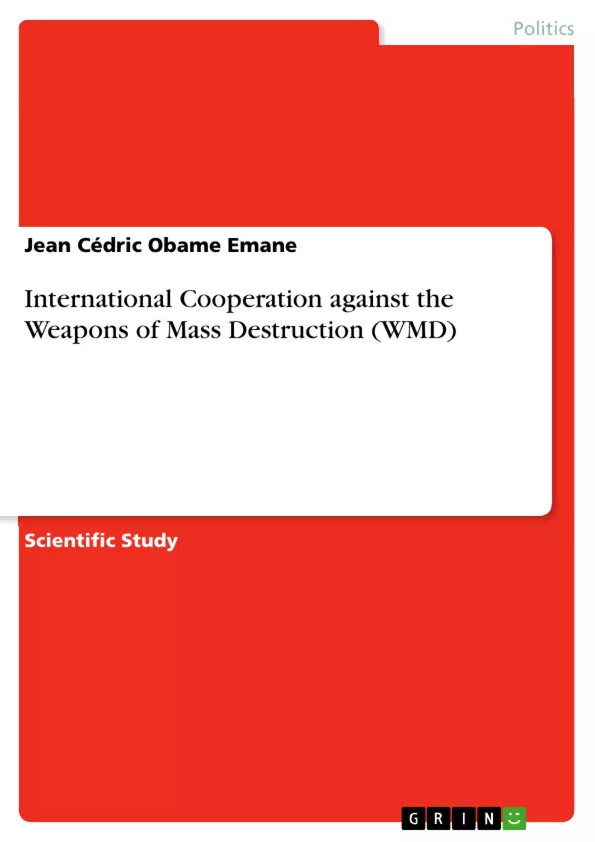Nunn (2005) postulated that no matter where people call their place, the central organizing security principal of the 21st century must be the prevention of the spread or utilization of nuclear weapons or other WMD. The IAEA is front and at the core in this quest. Its mission, its authority and its resources should be reinforced. We are in race between cooperation and catastrophe. If we have a nuclear disaster, the world will demand immediate action. Why expect it to occur and act a day after? We should take action now, (Nunn, 2005).
Sagan (2005) indicated that all governments are hostages to each other’s nuclear physical security measures today. The stealing of a single nuclear weapon or a significant quantity of nuclear material in any state represents a danger for all nations (Sagan, 2005). Governments in each state consequently have a legitimate interest in gaining reassurance that others are keeping up effective physical security. Furthermore, a global multiplier concept of defense is obviously essential to Increase efforts to mandate advanced domestic controls (Sagan, 2005). Nuclear non-proliferation and disarmament are the primary line of defense in that if fewer states have nuclear weapons and those that have them reduce the size of their arsenals, the protection of existing weapons turns out to be more manageable (Sagan, 2005).
[...]
Inhaltsverzeichnis (Table of Contents)
- Introduction
- 1. G8 Global Partnership
- 2. Abolishing Nuclear Weapons
- 3. The IAEA's Role and the Safety Issue: The Case of the Fukushima's Accident in 2011
- 4. The Principles
- 5. Japan's Self Defense: the Issue of Nuclear Breakout.
- 6. The Current Posture of Japan
- 7. The Nuclear Umbrella
- Conclusion
Zielsetzung und Themenschwerpunkte (Objectives and Key Themes)
This work examines the critical issue of international cooperation in combating the proliferation and use of Weapons of Mass Destruction (WMD). It aims to highlight the importance of global partnerships and the role of institutions like the International Atomic Energy Agency (IAEA) in promoting nuclear non-proliferation and disarmament.
- Global partnerships against WMD
- Role of the IAEA in nuclear non-proliferation
- Nuclear safety and the Fukushima disaster
- Nuclear breakout and the case of Japan
- The impact of WMD on international security
Zusammenfassung der Kapitel (Chapter Summaries)
- Introduction: This chapter establishes the urgent need for global cooperation to prevent the spread and use of WMD, highlighting the potential for catastrophic consequences. It underscores the vital role of the IAEA in this endeavor.
- 1. G8 Global Partnership: This chapter explores the G8's commitment to preventing the acquisition of CBRN weapons by terrorists or states sponsoring terrorism. It delves into the six key principles guiding the Global Partnership approach, including efforts to secure nuclear material, control borders, and redirect former weapons scientists.
Schlüsselwörter (Keywords)
The primary focus of this work is on international cooperation, non-proliferation, disarmament, nuclear weapons, WMD, the IAEA, the G8 Global Partnership, and the Fukushima disaster.
Frequently Asked Questions
Why is international cooperation against WMD so critical?
Preventing the spread of nuclear, biological, and chemical weapons is essential to avoid global catastrophes and ensure the security of the 21st century.
What is the role of the IAEA in nuclear security?
The International Atomic Energy Agency (IAEA) is at the core of non-proliferation efforts, providing authority, resources, and monitoring to reinforce nuclear safety.
What is the G8 Global Partnership?
It is an initiative aimed at preventing terrorists or states sponsoring terrorism from acquiring weapons of mass destruction (CBRN materials).
How did the Fukushima accident affect global nuclear safety?
The 2011 disaster in Japan highlighted the urgent need for reinforced safety protocols and international standards for nuclear facilities worldwide.
What is meant by the "Nuclear Umbrella" in the case of Japan?
It refers to the security guarantee provided by a nuclear-armed state (like the USA) to protect a non-nuclear state, a key issue in Japan's self-defense strategy.
- Citation du texte
- Dr. Jean Cédric Obame Emane (Auteur), 2018, International Cooperation against the Weapons of Mass Destruction (WMD), Munich, GRIN Verlag, https://www.grin.com/document/442612



